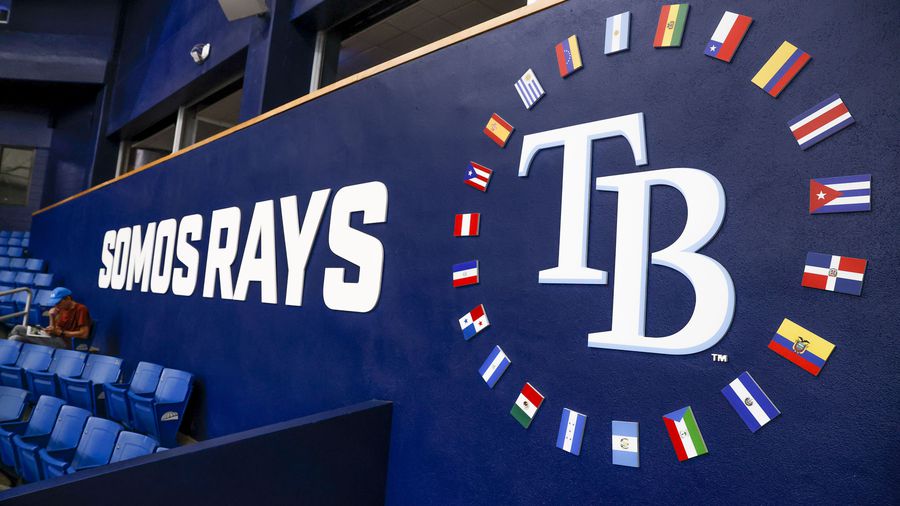A recent lineup with players from eight countries is the most in modern history.
By Marc Topkin, Tampa Bay Times Staff
Baseball is already a global game. Last Sunday, the Rays made it even worldlier.
Their batting order included players born in eight countries, the most for a game in modern history (since 1900), per the Elias Sports Bureau.
That included Brandon Lowe (United States), Manuel Margot and Jose Siri (Dominican Republic), Randy Arozarena (Cuba), Harold Ramirez (Colombia), David Peralta (Venezuela), Isaac Paredes (Mexico), Yu Chang (Taiwan) and Christian Bethancourt (Panama).
And the Rays could have made it a complete mix had Ji-Man Choi (South Korea) been in the lineup rather than Margot or Siri. (Their achievement was first noted on Twitter by DJ Rice (@TheReddDJ).

The last team to have players from eight countries on the field together, per Elias, was the 2014 Rangers, which included pitcher Yu Darvish of Japan.
The confluence of cultures makes for some interesting clubhouse dynamics, but the Rays make it work.
Baseball is enough of a universal language, and most of the players know enough English to communicate on everyday matters. Coaches Rodney Linares and Brady North speak Spanish, as do several other staffers. Plus the team has full-time Spanish and Korean interpreters, another on call for Chang (Mandarin), and three staffers who speak Japanese if needed.
“It’s really cool,’’ general manager Peter Bendix said. “It’s really cool to see how everybody works together in this clubhouse from different backgrounds. I don’t just mean from different countries, but that is one example.
“I think it speaks to baseball today. I think it speaks to our ability to go out and identify players. And I think it speaks to these guys and their ability to come into a clubhouse together with people who might be just like them or might be very different than them and create this winning culture.’’
And that shows something, manager Kevin Cash said.
“We pride ourselves in being diverse with our roster, meaning having different players have special skill sets,’’ he said. “Now we’ve taken it to another level of being really diverse in the clubhouse. And I think it’s really impressive how that diversity has interacted and embraced one another throughout the season.’’
Major League Baseball touts the diversity of its players pool, noting that 275 of the 975 players on opening-day rosters (and inactive lists) this year – nearly 30 percent – represented 21 different countries and territories outside the 50 states, matching the most ever.
That list includes, in order of having the most players, the Dominican Republic, Venezuela, Cuba, Puerto Rico, Mexico, Canada, Colombia, Japan, Panama, Curacao, South Korea, the Bahamas, Aruba, Australia, Brazil, Germany, Honduras, the Netherlands, Nicaragua, Taiwan, and the U.S. Virgin Islands.
Pitcher Drew Rasmussen said he discussed the worldly nature of the game recently with Shin Fukuda, the Rays’ athletic trainer and acupuncturist originally from Japan.
“We were talking about how cool it is, just the game of baseball in general,’’ Rasmussen said. “You look at basketball and it does cover some European countries and into the Asian markets a little bit, too. You look at soccer, it’s a lot of the Latin American countries and a lot of the Spanish countries. But baseball is really the only sport I feel like that covers the globe. So it was really cool to see all the representation we have.
“It is a diverse locker room, even though we joke about our pitching staff because it’s just college white guys — that’s what we are. But it is really cool to see the mix of people that we have in here and just the ability for everyone to get along. It’s just a crazy experience, but at the same time, it’s awesome.’’
And, as Choi said, via interpreter Daniel Park: “Because there’s a lot of guys from different ethnic nationalities here, I feel like I’m an in all-star game.’’
